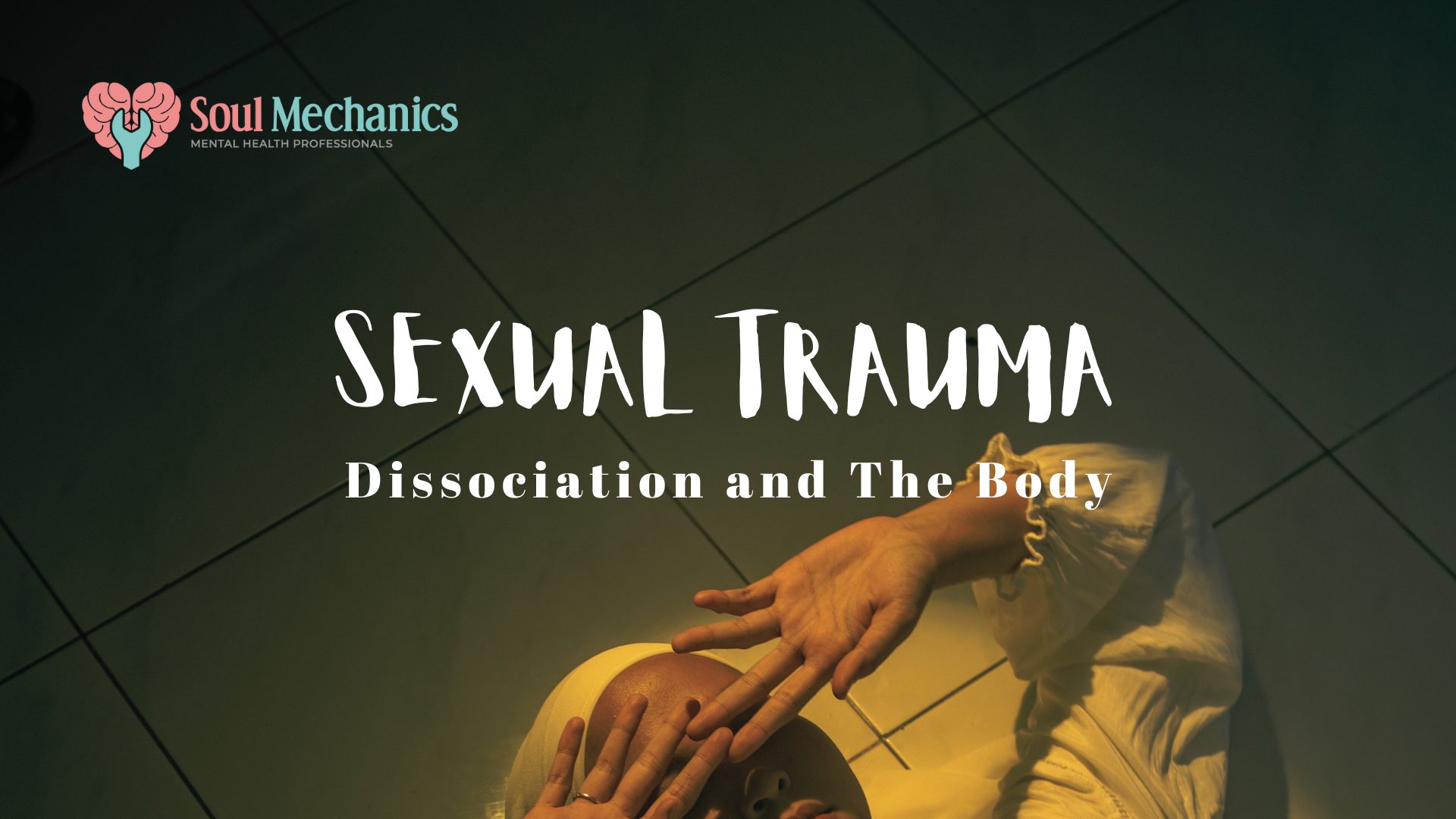Sexual Trauma: Dissociation & the Body
Sexual Trauma: Dissociation & the Body

Written By: Shaundtrya Ganasan, Licensed Counselor (KB11097)
Disclaimer & Trigger Warning: This article delves into topics related to sexual trauma, which may be triggering for some readers. Please proceed with caution and reach out to a trusted one or a mental health professional if you are struggling. The content below is intended for educational purposes only and does not aim to retraumatize or provoke distress. If you or someone you know has experienced sexual trauma, please channel the right assistance from a mental health professional.
Sexual trauma imprints a deep, invisible scar that would impact the survivor far beyond imagination. One of the usual ways this trauma manifests itself is through dissociation - a self-defensive response where your mind begins to disconnect from your body, usually without your consciousness. This dissociation produces long-lasting feelings of disconnection which further impacts your memory, emotions and how you feel about your body. This split between your mind and body can last longer after the traumatic incident, influencing your physical and emotional response towards the world around you.
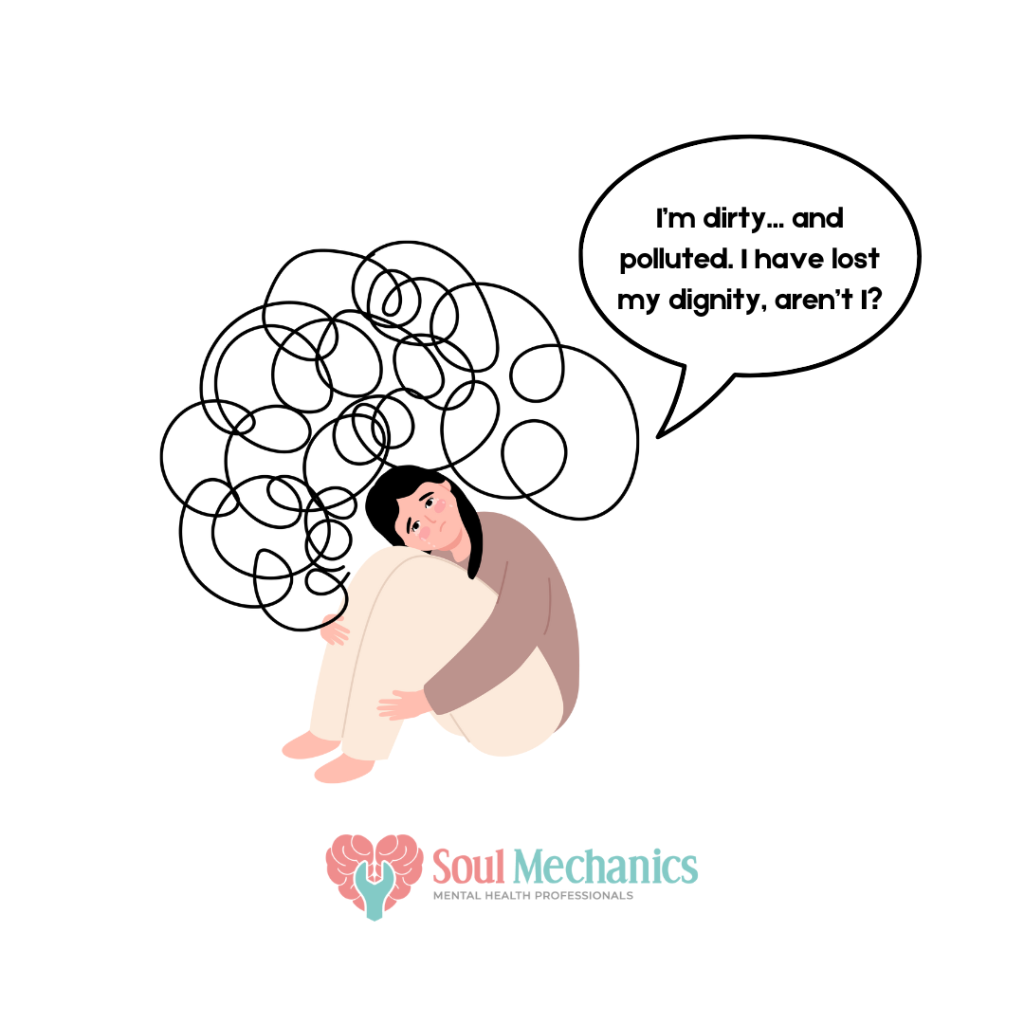
Life after sexual trauma can appear to be like moving through a maze that is fog-filled. Although the paths may seem familiar, your fear and pain cloud each step. The simplest tasks such as having small chats with loved ones or having relaxation can feel almost impossible to achieve. Your mind would always consciously and unconsciously search for any invisible threat.
Memories of the traumatic incident can be tough to recall, yet your body holds onto them, leaving deep-rooted reminders embedded in pain, reactions, and pain that defies your conscious understanding. While trauma can vary for different individuals - even a single, inappropriate touch can cause long-lasting harm. Hence, it is important to not minimize its impact. Trauma’s effect on one’s body and mind is valid, no matter the event’s intensity and form.
Reminder: If you or your loved ones are struggling with sexual trauma or mental health issues, please don't hesitate to reach out to us at Soul Mechanics KD or Soul Mechanics Ipoh. Remember, seeking help is not a sign of weakness but strength!
Recognizing Men’s Experience with Sexual Trauma
Sexual trauma can affect anyone, including men, yet their experiences are often dismissed and overlooked due to the stigma that surrounds them. Many men feel significant shame or fear of being seen as weak. This prevents them from seeking support. This silence can deepen their internal struggles, leading to experiencing a sense of unworthiness and detachment.
Emotional Suppression
Societal or family expectations also push men to suppress their emotions, leading towards unaddressed pain.
Stigma of Masculinity
Men may feel the societal pressure of “men up”, “be tough” or “men can’t cry”, which prevents them from acknowledging their sexual trauma.
Fear of Judgement
Men tend to also worry about being seen as someone less masculine or shamed for their trauma, which creates resistance to seeking help.
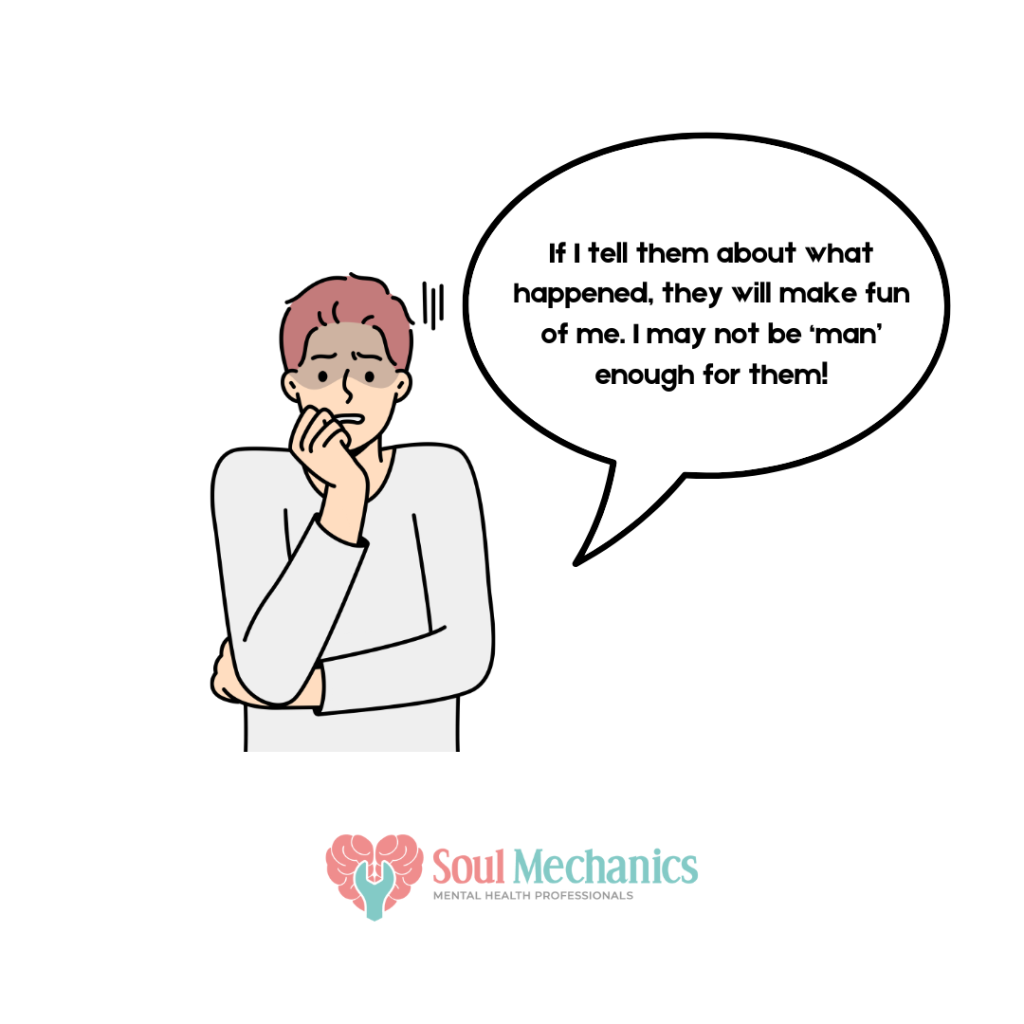
Substance Usage
Some male sexual survivors tend to cope with drugs, alcohol or other substances to numb and avoid their emotional pain.

Difficulty with Intimacy
Sexual trauma can cause men to avoid committing to relationships or find it tough to be vulnerable. This further impacts their capability and ability to connect with others.
Therapy can be a safe yet essential space for men to process their trauma and begin their journey towards healing and reclaiming their lives.
Reminder: If you or your loved ones are struggling with sexual trauma or mental health issues, please don't hesitate to reach out to us at Soul Mechanics KD or Soul Mechanics Ipoh. Remember, seeking help is not a sign of weakness but strength!
Why We Feel Before We Remember?
After going through sexual trauma, many survivors tend to feel intense physical sensations and emotions that can get disconnected from their conscious memories. Trauma can be stored in the body as “implicit memory”. These memories live as physical sensations or sudden emotions that are triggered by subtle cues in the surroundings. As a trauma survivor, you may not consciously remember the trauma, but your body often responds as though it does.
Implicit Memory Storage
Traumatic incidents often get encoded as emotional and sensory memories, not as clear verbal memories. This influences your body to react without needing a conscious recall.
Fight-or-Flight Activation
When triggered, your brain tends to activate its fight-or-flight response, leading to experiencing symptoms like increased heart rate, sweating, or difficulty breathing, even in safe surroundings.
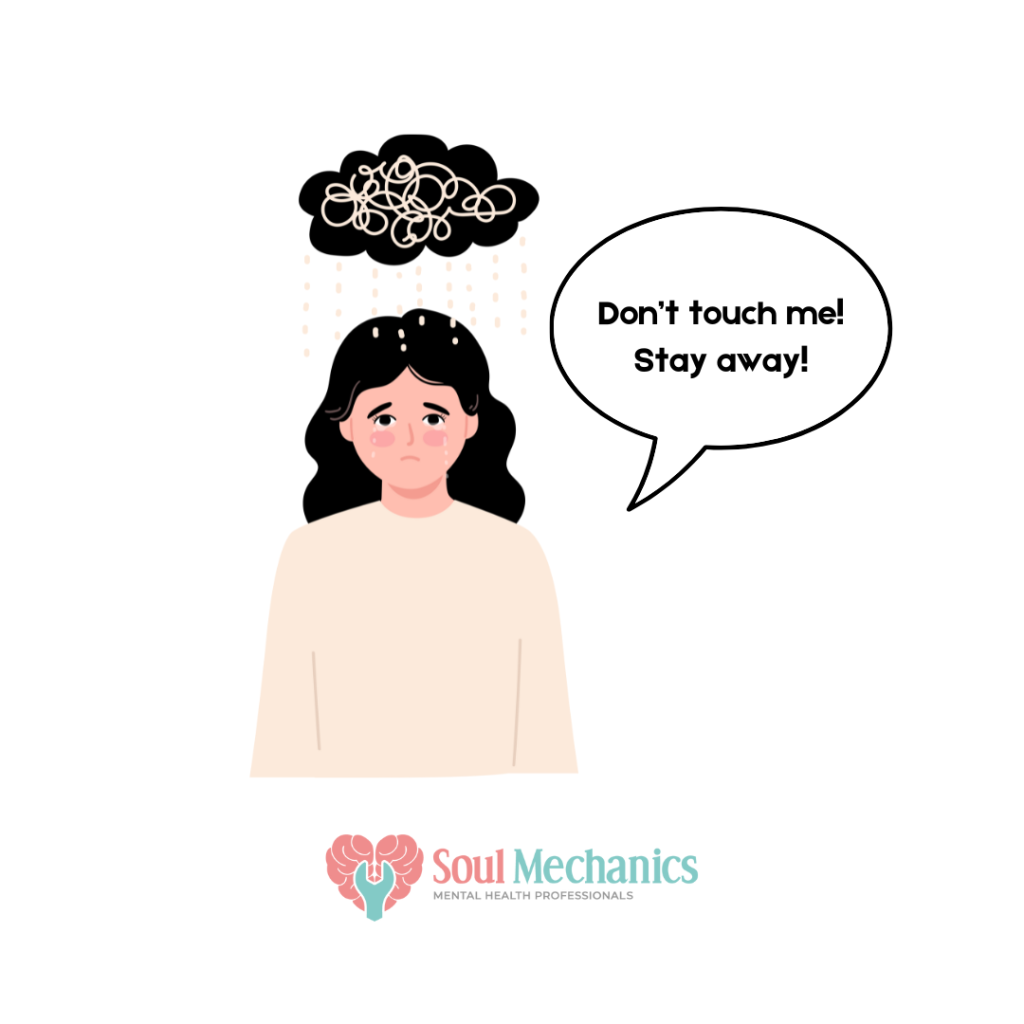
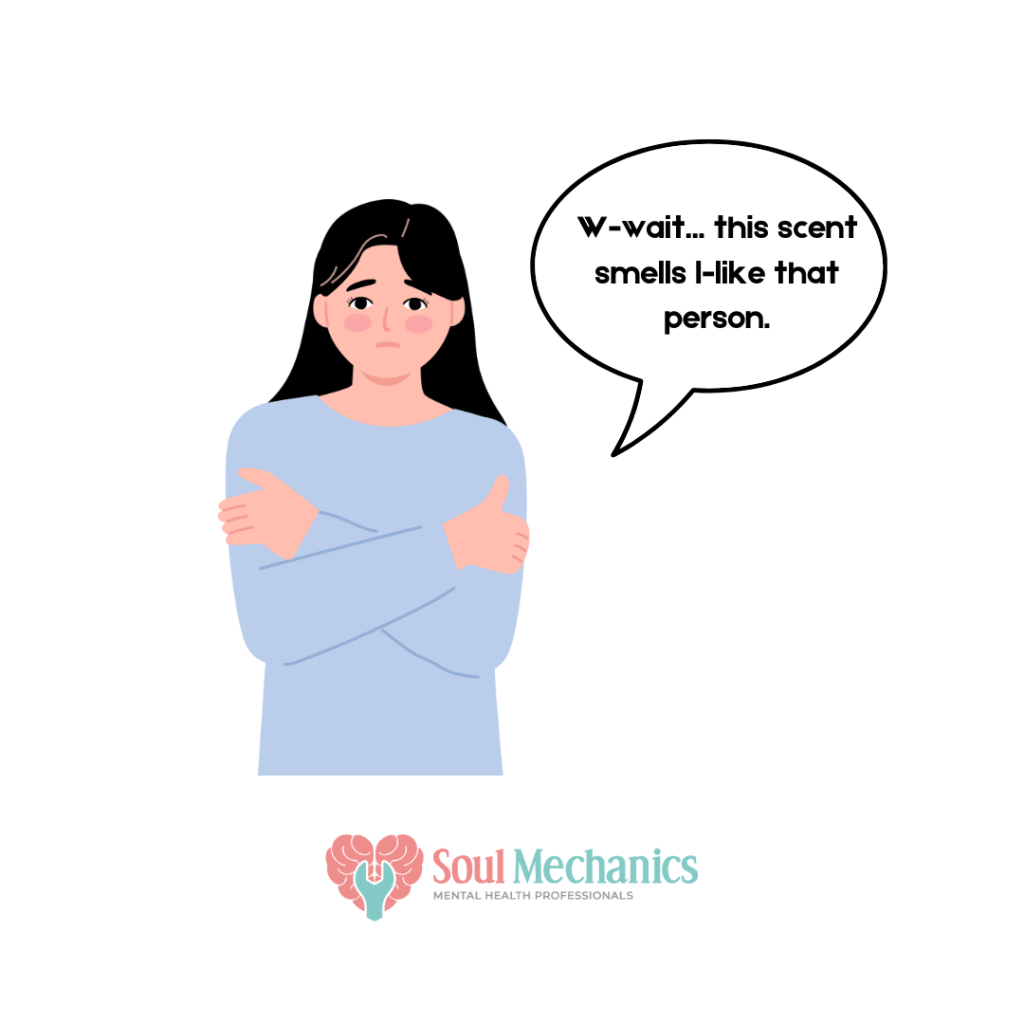
Heightened Sensory Awareness
Small cues like smells, environments, or sounds can unconsciously remind your body of the trauma experienced. This leads you to experience emotional or physical responses.
Emotional Overload
As a sexual trauma survivor, you may also experience intense emotions that are tied to bodily sensations which makes you feel sudden and overwhelming.
Difficulty Recognizing Triggers
As your body is used to reacting before your mind fully processes, you may struggle to pinpoint or manage your triggers, causing you to experience feelings of confusion or helplessness.
Living in Survival Mode: When Your Nervous System is on High Alert
Sexual trauma activates your body’s survival mode which keeps you in the tabs of heightened alertness; also known as “hypervigilance”. This state often makes you to be conscious of the potential threats, even if nothing is present. This experience can leave your nervous system always on guard, making it tough to relax or feel safe.
Chronic Hypervigilance
You may feel the irresistible urge to scan your surroundings for possible threats, which can be very exhausting both mentally and physically.
Overactive Amygdala
The area linked to survival responses and fear, the amygdala, can remain overactive, leading to constantly having a sense of danger.
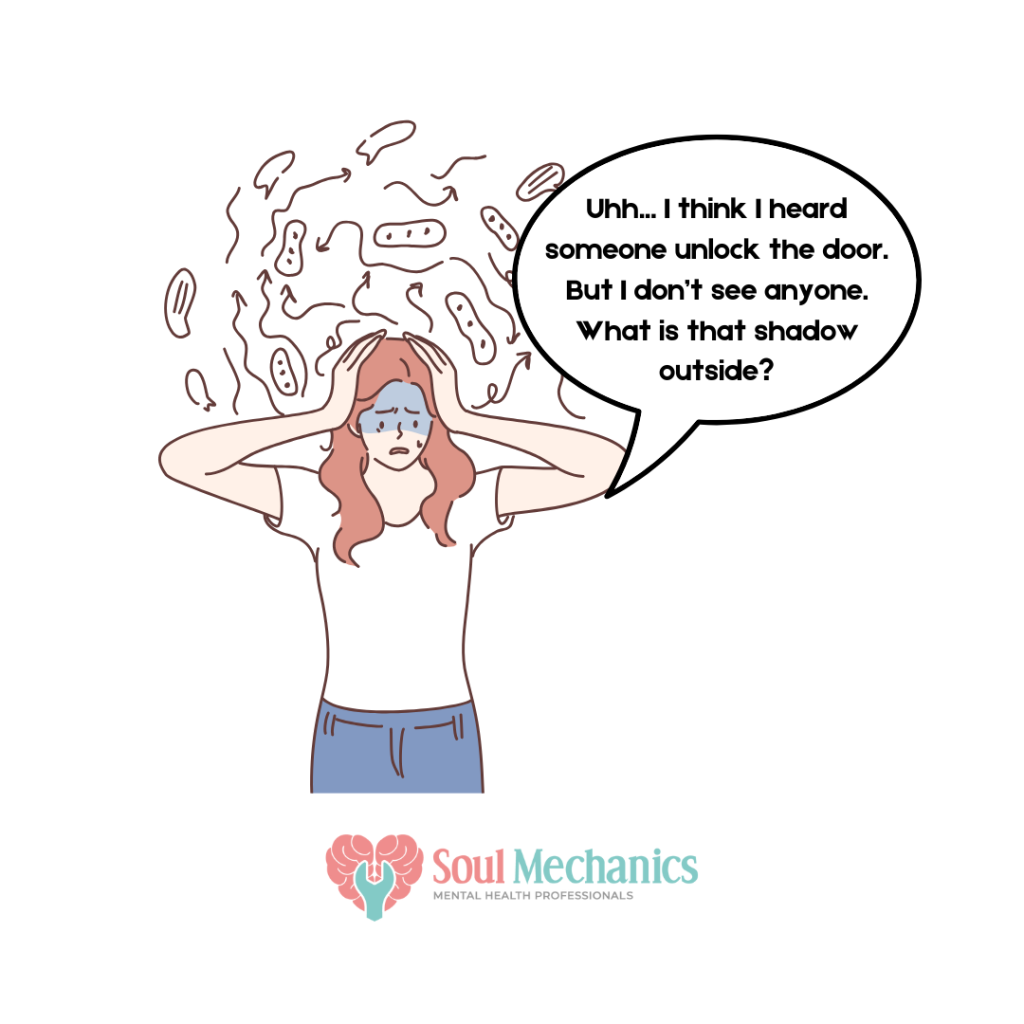
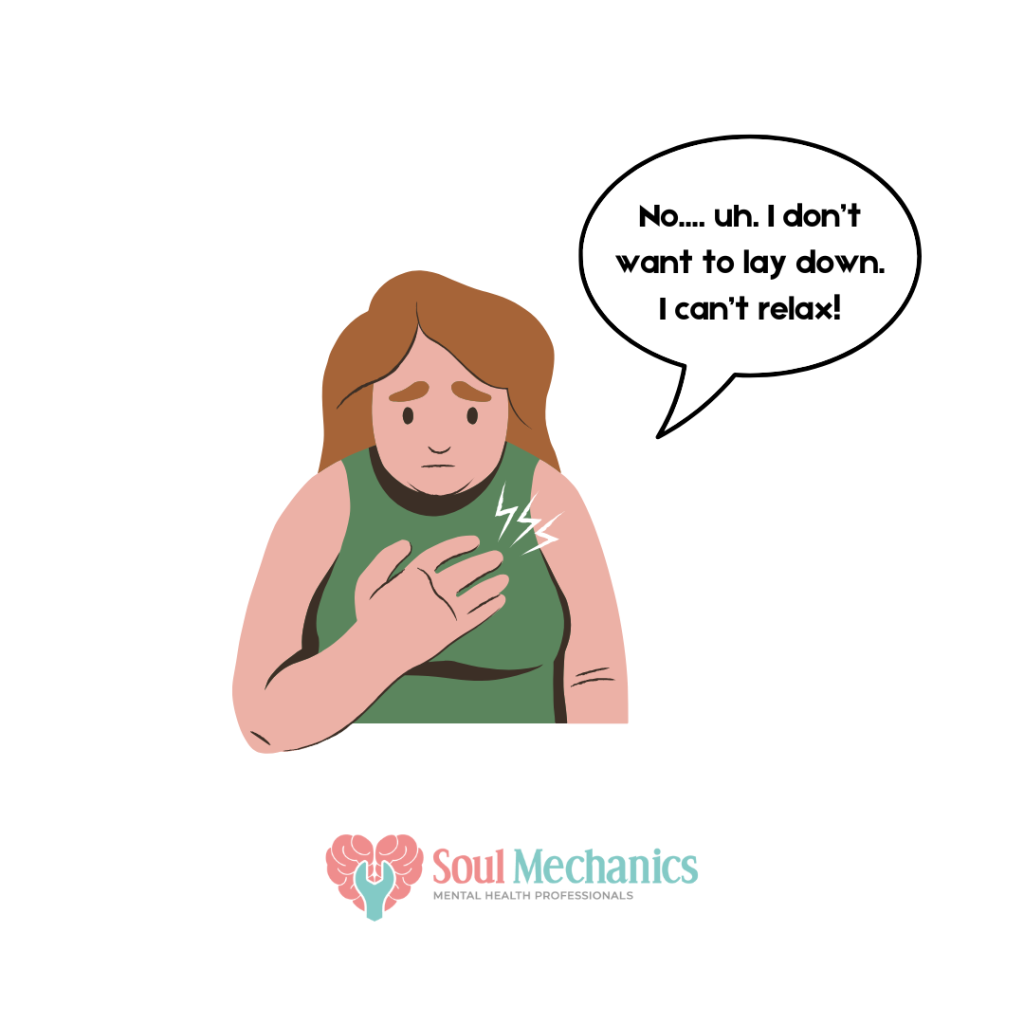
Sleep Disruptions
Hypervigilance can make you experience nightmares, insomnia, or frequently startled waking-ups in the night, which further reinforce the sense of unsafe within your body.
Inability to Relax
Your body’s difficulty in exiting survival mode fully means you will be having a tough time feeling calm, even in spaces that usually feel safe, leaving you to feel drained - both mentally and physically.
Startle Responses
Small triggers or stimuli, like sudden sounds or certain colours, can lead to intense reactions that can prevent you from concentrating or relaxing.
Reminder: If you or your loved ones are struggling with sexual trauma or mental health issues, please don't hesitate to reach out to us at Soul Mechanics KD or Soul Mechanics Ipoh. Remember, seeking help is not a sign of weakness but strength!
Why the Body Remembers What We Forget About Sexual Trauma?
Dissociation often acts as a defence mechanism. It temporarily shuts your mind from the experience to make the unbearable events more manageable. As time passes, this defensive side can cause you to feel fragmented, with memories inaccessible to your conscious mind while your body retains them.
Mind-Body Disconnect
Dissociation can lead you to feel numbness or detachment from your physical sensations. This further adds to your feelings of disconnection.
Sense of Fragmentation
You may feel as if your body and mind are split. This makes it tough for you to connect with yourself or others in the ways you used to.
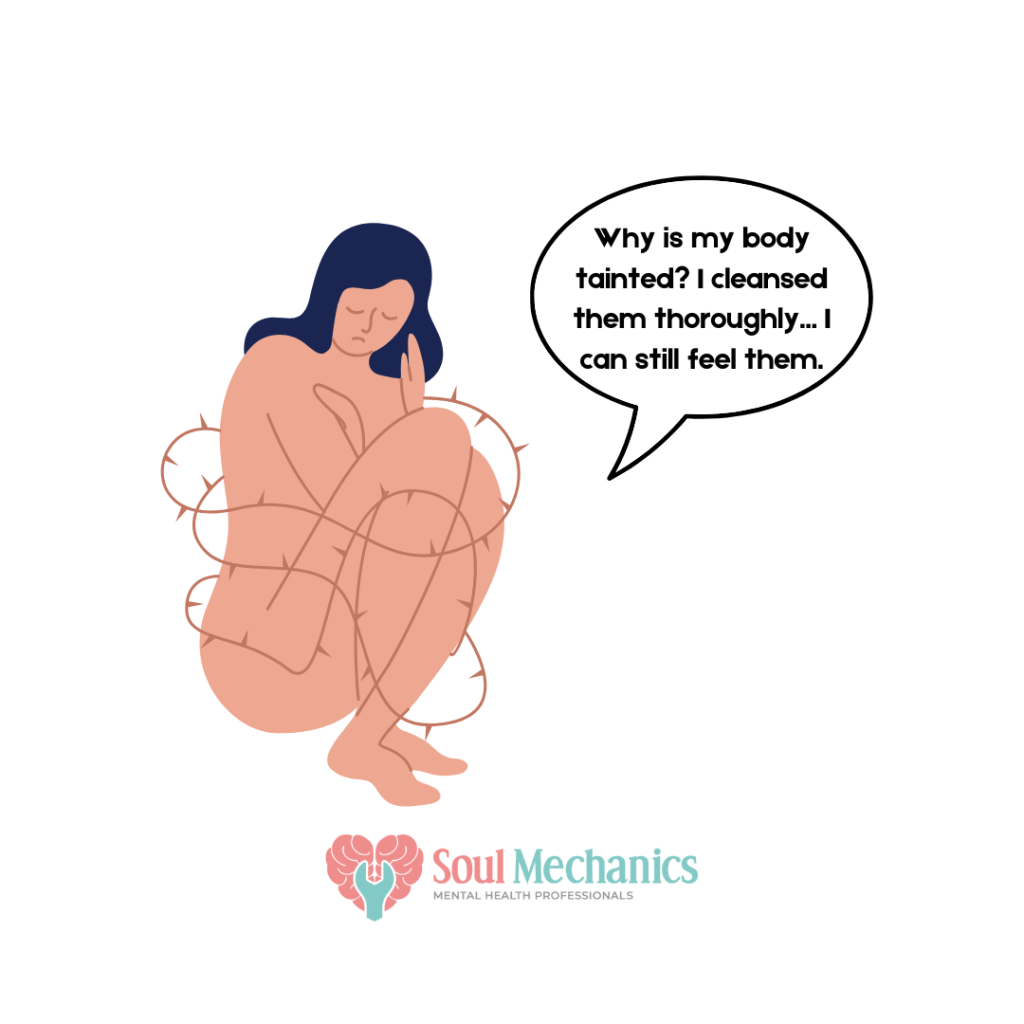
Physical Symptoms Without Medical Cause
As a sexual trauma survivor, you also tend to experience unexplained physical symptoms or chronic pain rooted from your trauma.
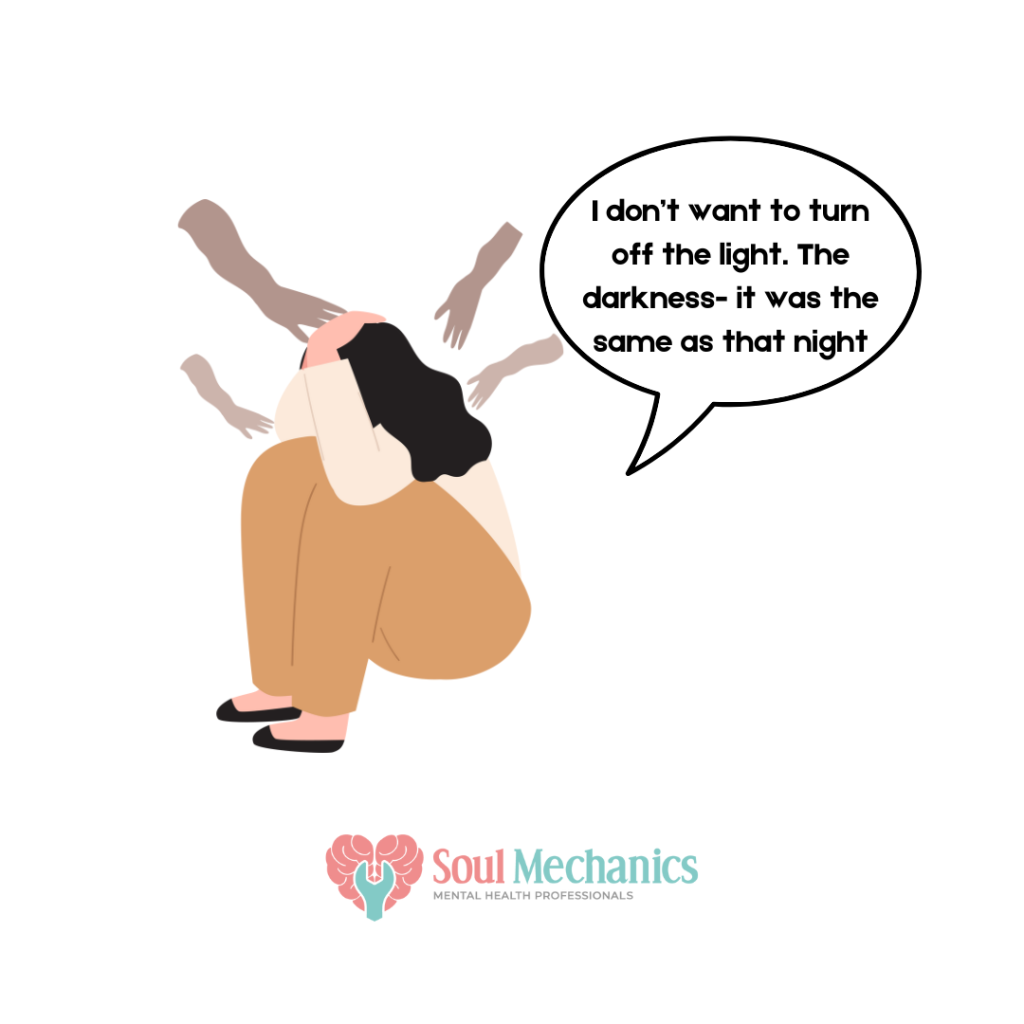
Reactivity to Sensory Stimuli
Your body may also be reactive towards certain smells, sounds, or settings that remind you of your trauma, leading to experiencing automatic and intense responses.
Somatic Memories
These stored and unprocessed memories often manifest as pain, sensations, or muscle tension that start without conscious explanation.
The Deep Hurt: When Sexual Trauma is Perpetrated by Someone Trusted
Sexual trauma that has been invoked by someone you trust creates a deep scar of trauma and betrayal. This betrayal often disrupts your ability to have a sense of safety and trust in relationships; further impacting your sense of self, personal boundaries, and intimacy.
Betrayal of Trust
When your trauma is caused by someone you love, you tend to experience long-imprinted feelings of betrayal that affect all your future and present relationships.
Difficulty Trusting Others
You may also avoid intimacy, as vulnerability can appear to be overwhelming and fear the harm intimacy can possibly lead to.

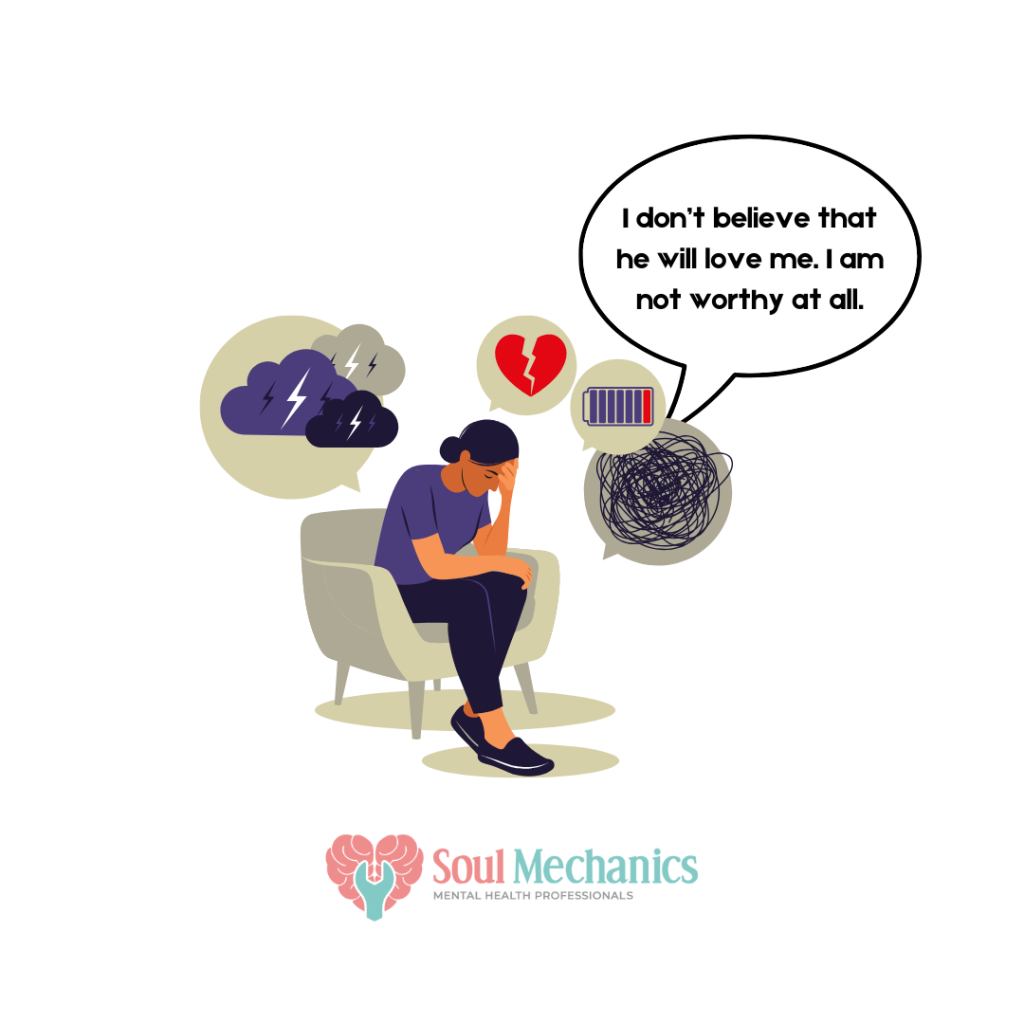
Self-Blame & Guilt
As a survivor, you often tend to internalize your guilt and shame, struggling with self-blaming. This will make it difficult for you to feel worthy of care, support and love.
Impact on Self-Esteem
You may also go through long-lasting effects on your self-worth whereby it can be tough to regain your sense of self and reclaim your self-control.
Emotional Numbness
As an unconscious coping to avoid experiencing pain, you may emotionally detach yourself from others, especially loved ones.
Reminder: If you or your loved ones are struggling with sexual trauma or mental health issues, please don't hesitate to reach out to us at Soul Mechanics KD or Soul Mechanics Ipoh. Remember, seeking help is not a sign of weakness but strength!
How Sexual Trauma Impacts Sexual Behavior
Sexual trauma often creates profound changes in the survivors’ relationship with their own sexuality. Some may go through hypersexuality, whereby they tend to engage in excessive sexual behaviours to regain their sense of control over their body or to numb their emotional pain. Whereas, some may struggle with low sexual libido, whereby they may find intimacy as something that is painful, overwhelming, triggering or undesirable due to past bitter experiences.
Hypersexuality as Coping
Some sexual trauma survivors often engage in sexual pleasures and encounters to regain their control over body. This can be an unconscious act of masking the underlying pain.
Avoiding Intimacy
Some survivors also avoid any sexual activity to protect themselves from any potential emotional or physical reminders of the trauma experienced.
Shame Around Sexuality
This trauma also makes one feel ashamed of their bodies or sexual desires which further makes their healing tough.
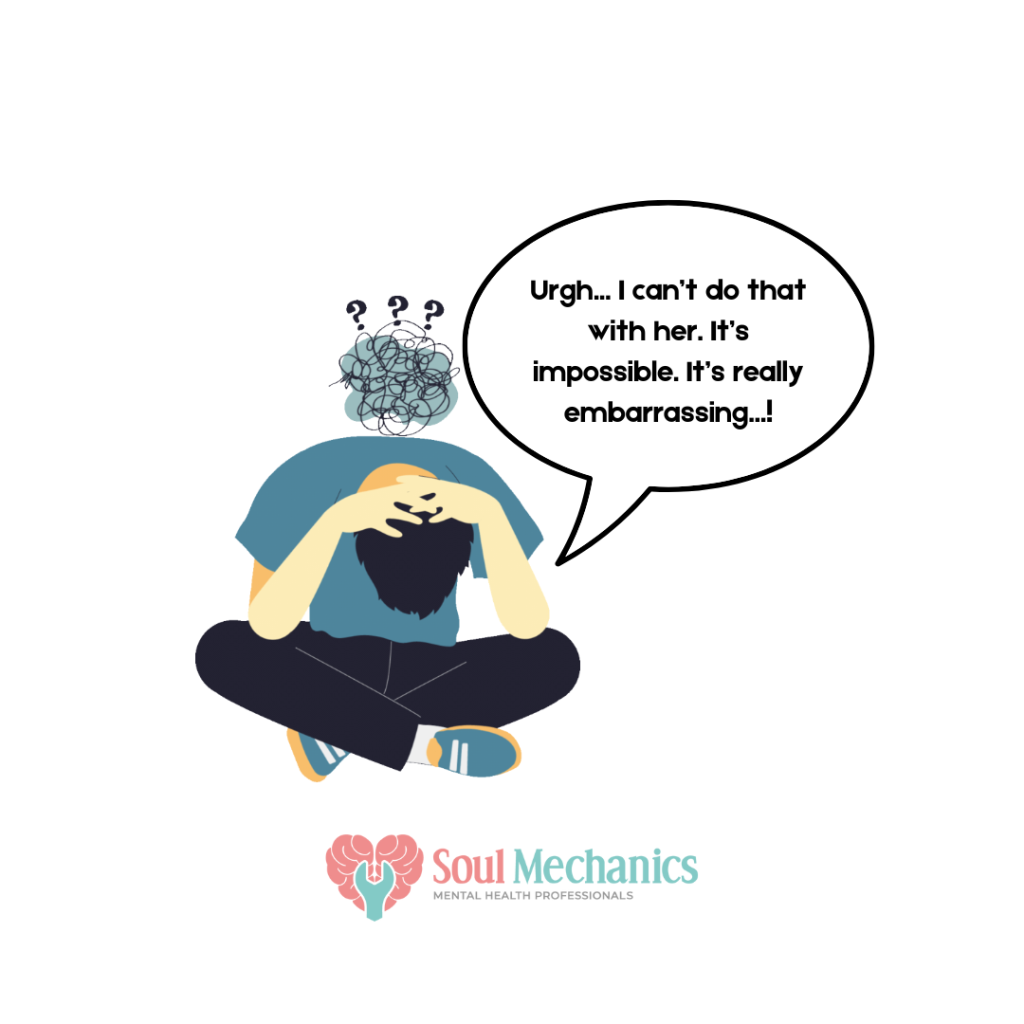
Triggering during Intimacy
Sexual trauma survivors tend to experience overwhelming emotions or flashbacks of memories during intimate moments. This leads to experiencing a sense of disconnection with their partner.

Difficulty Rebuilding Trust
Some survivors find themselves struggling to trust their partners. This affects their ability to develop healthier and more intimate romantic relationships.
Acknowledging these behaviours and their underlying navigates you to rebuild a healthy relationship with intimacy. It would also guide you to break free from the shadows of your trauma.
Reminder: If you or your loved ones are struggling with sexual trauma or mental health issues, please don't hesitate to reach out to us at Soul Mechanics KD or Soul Mechanics Ipoh. Remember, seeking help is not a sign of weakness but strength!
Sexual Trauma is Valid, Regardless of Gender or Severity
No matter what the sexual abuse survivor’s gender is, the trauma experienced is valid and deserves acknowledgement and support. The society often marginalizes and invalidates sexual trauma experiences that do not fit in their narrow definition of what is trauma, such as bad touches or coercion that did not involve any physical violence. However, even a small violation of someone’s boundaries can cause deep-rooted emotional and psychological scars. Thus, trauma should not be defined by the event itself but by its impact on the person undergone it.
Minimizing Impact is Harmful
Invalidating or gaslighting the survivor’s pain can only deepen their wounds further and delay their healing journey.
Trauma is Personal
The personal experience of each sexual abuse survivor is different and their emotional response towards it could vary; regardless of the perceived severity of the incident.

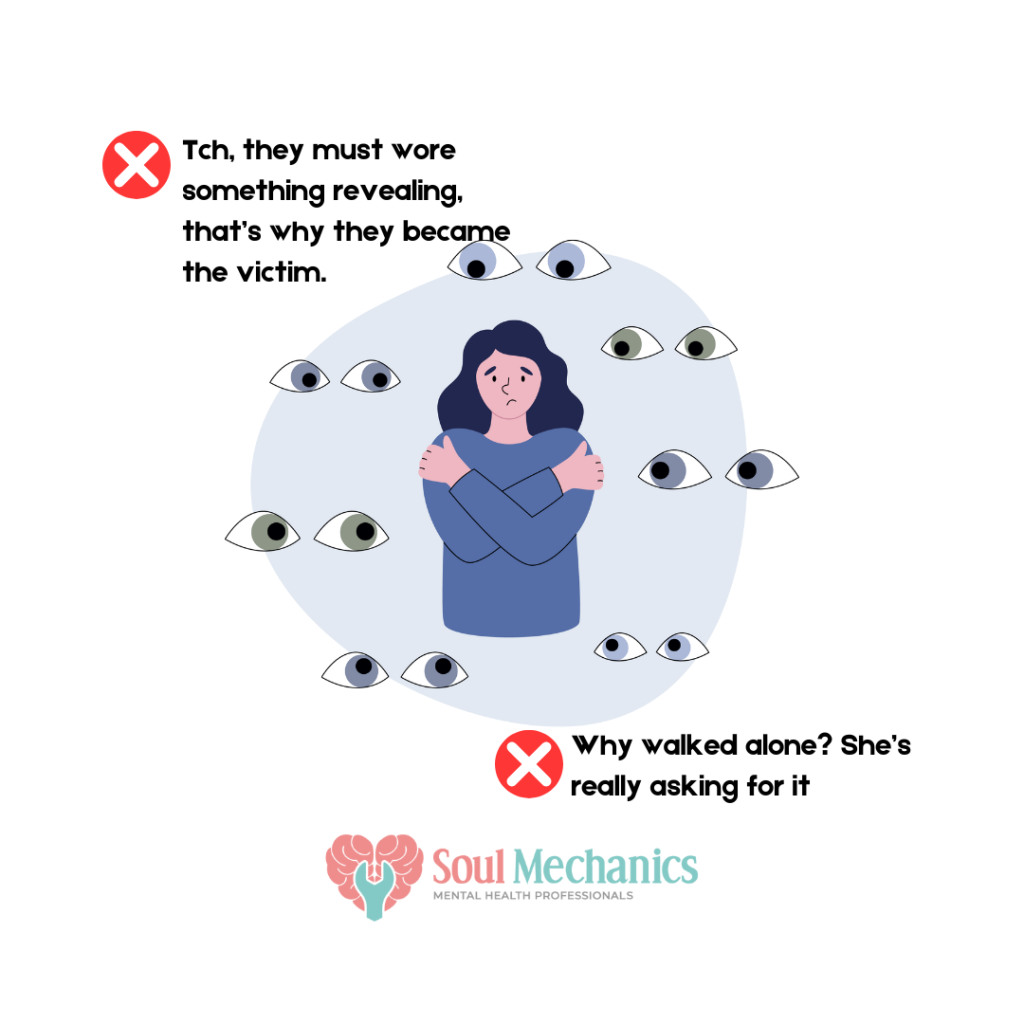
Cultural Myths
Myths that surround sexual trauma regarding what kind of encounters are “counted” as trauma often discourage them from seeking support.
Survivors of All Genders Matter
Sexual trauma can impact anyone from all genders equally. Everyone deserves the same level of support, love, care and compassion to heal.
Reminder: If you or your loved ones are struggling with sexual trauma or mental health issues, please don't hesitate to reach out to us at Soul Mechanics KD or Soul Mechanics Ipoh. Remember, seeking help is not a sign of weakness but strength!
Healing is for Everyone
Every trauma survivor, regardless of their trauma’s nature, has the full right to regain their sense of self and begin their healing.
Sexual trauma is not a journey that one should walk alone, and seeking support is never a weakness, but a sign of courage. It marks the stepping stone toward reclaiming one’s self-worth and safety.
Pathways of Healing: Reconnecting with Mind & Body
Reconnecting with your body and mind after experiencing sexual trauma is a gentle, gradual process which requires patience and compassion. Each step forward, no matter how small it is, signifies resilience, self-awareness and self-love. During this process, therapy can be your guiding light.
Therapy as a Safe Space
Therapy will provide you with a safe space to explore, process and heal your experiences, triggers and reactions without the fear of being invalidated.
Understanding Triggers
Your therapist will also navigate you to address your triggers and develop healthier coping to gain a sense of control over your emotional responses.

Body Scan & Grounding
Techniques like mindfulness, grounding, and body scan allow you to reconnect with your body. This helps you to regain your safety both physically and emotionally.
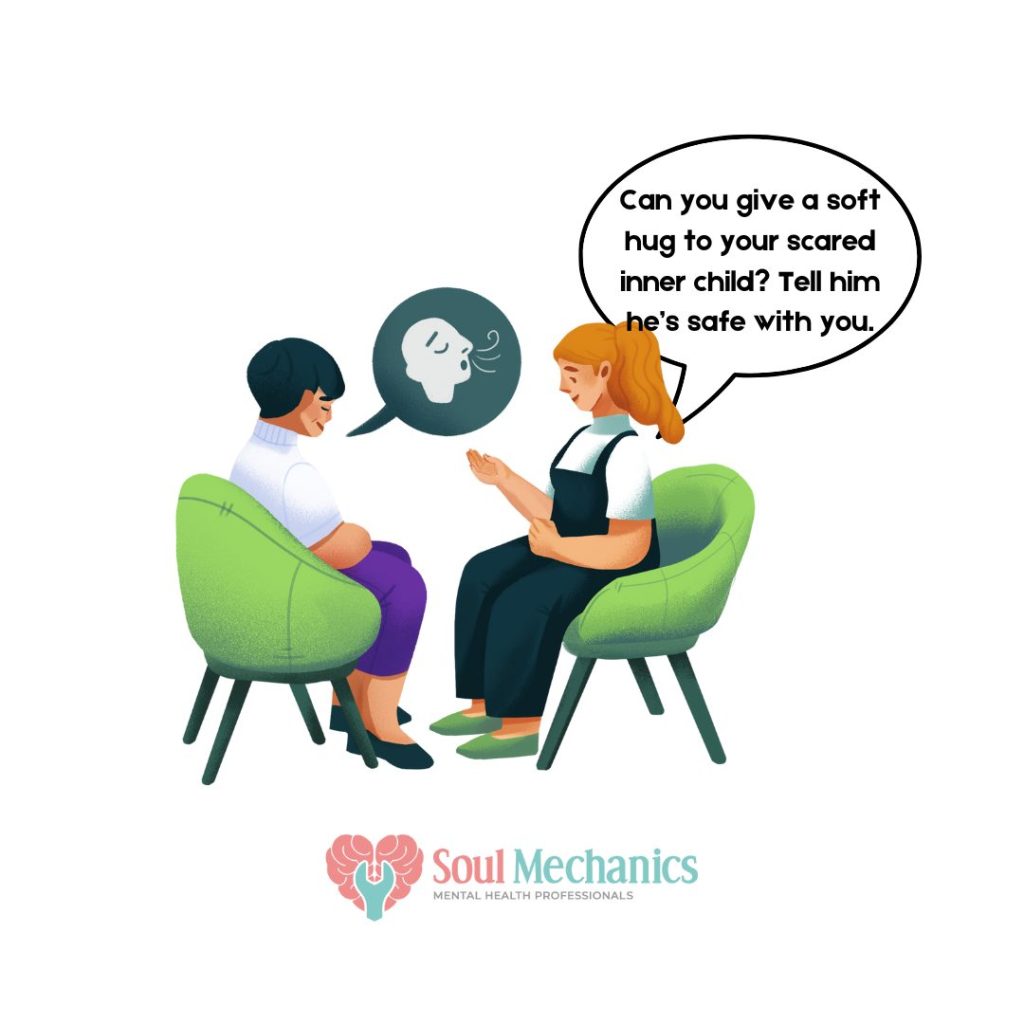
Emotional Regulation Skills
A therapist will equip you with tools and approaches to manage your overwhelming emotions or numbness which allows you to experience calmness and better stability in daily life.
Gradual Desensitization
Through gradual processing and exposure, you can learn to face your painful memories and feelings. This allows you to reduce the emotional intensity linked with the bitter experiences.
Inner Child Work
Learning to connect and nurture your inner child opens a pathway to heal your vulnerable parts which further cultivates emotional growth and self-love.
Rebuilding Trust & Boundaries
Therapy also helps you to develop healthier boundaries with others and rebuild your self-trust. This will empower you to approach your relationship with yourself and others with confidence.
Reclaiming Sense of Control
A therapist will also navigate you to reclaim control over your healing; restoring a stronger connection between your body and mind.
Moving Toward Wholeness
Healing from dissociation due to sexual trauma is not an easy journey, but it is the stepping stone towards experiencing wholeness. With courage, right support and therapy, you can gradually learn to reconnect with yourself, piece by piece. By honouring your journey and understanding your body’s role in the trauma experience, you can learn to rebuild hope with a renewed sense of self. This will allow you to experience the colours of life and embrace your life with a sense of safety and wholeness.

“Some wounds are deep & infectious. With love and patience you can turn it into a bravery scar.”
Shaundtrya Ganasan, Licensed Counselor (KB11097)
If you’re looking for a therapist in Kota Damansara or Ipoh area, you can click here for more information.
If you enjoyed reading this, why not broaden the horizon of knowledge by learning about "Self Harm: The Silent Struggles"? You can read the blog here.
For more content related to mental health do follow us on our official Instagram.

